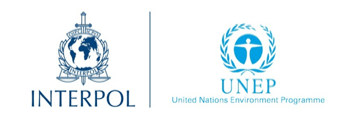 6 November 2013: Participants at the First International Conference on Environmental Compliance and Enforcement highlighted the need for capacity building, improved intelligence capabilities and increased development of operational tools and toolkits as key action points to address the increasing threats posed by environmental crime, such as illegal trade in wildlife, timber and CFCs, and illegal shipments of waste.
6 November 2013: Participants at the First International Conference on Environmental Compliance and Enforcement highlighted the need for capacity building, improved intelligence capabilities and increased development of operational tools and toolkits as key action points to address the increasing threats posed by environmental crime, such as illegal trade in wildlife, timber and CFCs, and illegal shipments of waste.
Two panel sessions were held on the trends and impacts of crime and other illicit activities against the environment, and on solutions and impacts in combating crime. These sessions were followed by a discussion on the outcomes and action points of the Conference.
Panelists highlighted the effects of environmental crime, noting that it undermines livelihoods and resource security. Cooperation and collaboration at all levels and in all aspects of fighting environmental crime were emphasized, with many calling for the establishment of National Environmental Security Task Forces (NESTs) to further strengthen enforcement mechanisms, with inter-sectoral coordination highlighted as key to these mechanisms. Addressing the drivers of demand for illicit goods, scaling-up successful projects aimed at decreasing environmental crime, recovering the assets and proceeds of environmental crime, including through freezing and confiscating goods or money, and increasing punitive measures were also noted as possible solutions or deterrents to environmental crime.
The Conference also saw the launch of the Great Apes Illegal Trade Database by the Great Apes Survival Partnership (GRASP). The database, developed in partnership with the UN Environment Programme World Conservation Monitoring Centre (UNEP-WCMC), will monitor and support efforts to reduce illicit traffic in chimpanzees, gorillas, orangutans and bonobos.
The Conference, convened by INTERPOL and UNEP, took place on 6 November 2013, in Nairobi, Kenya. It aimed to discuss: the recent trends in and the impacts of violations of international environmental law, particularly on sustainable development and the implementation of agreed environmental goals; possible solutions to combat environmental crime; and the impact of new and existing tools in combating these violations.
The Conference was followed by the first Executive Level Environmental Compliance and Enforcement Committee (ECEC) meeting, held in Nairobi, Kenya, from 7-8 November, which looked into the generation of innovative strategies to fight environmental crime through collaboration with governments, international organizations and local communities. [IISDRS Coverage of the Meeting][UNEP Press Release][Meeting Website] [GRASP Press Release] [UN News]

